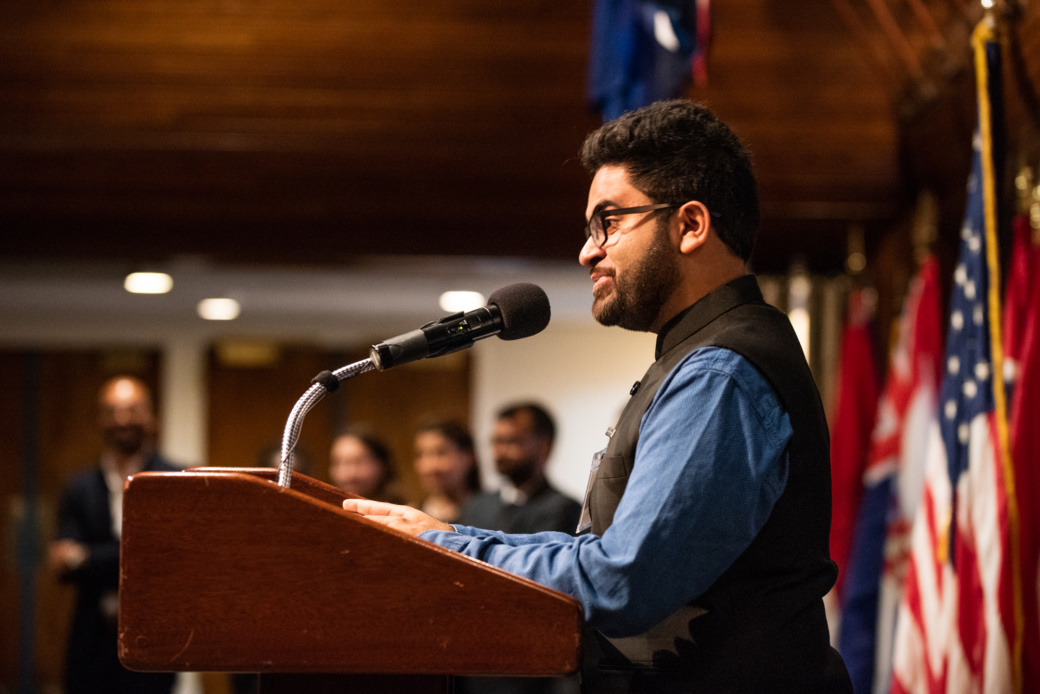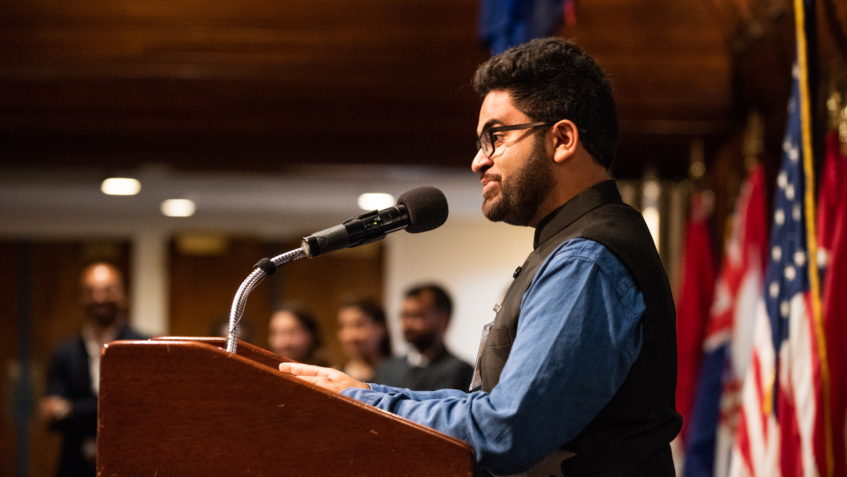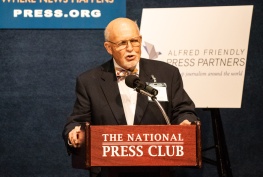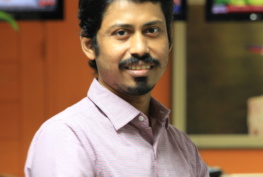Samarth Bansal, an Alfred Friendly Fellow in 2018, says few people in India are aware that details of their private lives are very public, and in the hands of private operators, thanks to lax privacy laws and high consumer demand.
These details, on everything from how they shop to who they date, are open for “aggregation, sale, purchase, leaks, and rampant misuse by anyone who has the means,” Bansal said in an email.

Samarth Bansal speaks at the Alfred Friendly graduation gala in the National Press Club in December, 2018
“If you follow news from India, you must have read about the digital surveillance threats that citizens, activists and dissidents potentially face from governments,” he said. “But it is important to note that the government is not the only entity that has access to personal information related to hundreds of millions of people. So do social media platforms, e-commerce websites, digital wallets, dating apps and mobile recharge shops, to name just a few others.”
They brainstormed about ways to narrow and personalize this huge topic with an editor at the long-form journalism outlet Rest of World. He suggested they tell the story through two character sets: private detectives and data brokers.
And for the article, Inside India’s booming dark data economy, they found a compelling victim: a 21-year-old college student whose new husband was recording private conversations between her and her friends and family without her permission. Telephone calls, video calls, and text messages. He ambushed her at a family gathering and played recordings, including conversations of her complaining about his parents. The lead:
“Ayushi Sahu has no idea how her phone was bugged or for how long she was surveilled. But she has one clue: Her Vivo smartphone was an engagement gift from her husband.
It is likely that Sahu’s phone had off-the-shelf spyware on it. Her husband may have installed it himself or even consulted a private detective before marrying her, who provided him with the phone. In either case, he would have been part of a growing trend of individuals — often, jealous lovers — making use of personal surveillance technology.
They found out that it’s now common for wealthy families to assess the suitability of a potential bride or groom by hiring a private detective, a vetting that usually costs around $500.”
In the case of apps that millions in India use but no one in the world is watching, they owe no accountability, Bansal said. “There is zero consideration for user privacy and hardly any avenues for complainants.”
Bansal’s article points out that a personal-data-protection bill would give users more control over their digital information.
The article was featured on the popular Longform.org website and was trending on HackerNews on the day it was published.
Bansal said the five months he worked for the data investigations team at The Wall Street Journal during his fellowship “boosted my confidence and broadened my perspective to report complicated stories. It’s hard to quantify the meta-stuff you learn by working in one of the world’s best newsrooms. But it leaves its mark in most of my work.”
Please consider donating today to Alfred Friendly Press Partners so we can train more ambitious reporters like Samarth Bansal who go on to make significant contributions to freedom of the press and democracy.





